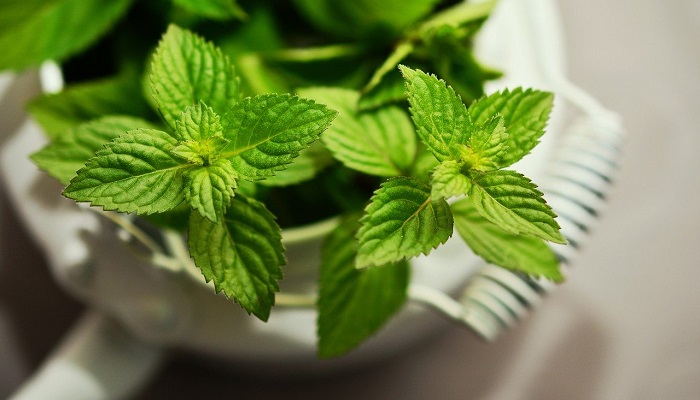Vertigo is a debilitating problem for many people. As you get older, your chances of someday experiencing this discombobulating “dizzy spell” get higher due to certain factors that worsen or increase as you age.
What is vertigo? What medical and natural options are available? Can essential oils help with vertigo? Learn more about vertigo and how natural remedies could help below.
What is vertigo?
Vertigo is a set of symptoms that describes feeling very dizzy or off balance. While some people experience it frequently, others may just experience or struggle with a sense of vertigo from time to time.
Some health issues that may cause vertigo or are related to vertigo include benign paroxysmal positional vertigo (BPPV), vestibular neuritis, and labyrinthitis.
Vertigo may cause people to fall, force them to lay down, or even feel nausea or experience vomiting. There may be a sensation of the room spinning.
Typically, vertigo is caused by an issue with the inner ear, which sometimes has to do with blood flow to the inner ear. This in turn could be caused by many things: such as headache, migraine, head injury, neck injury, or in rare cases a brain tumor. Vertigo can also sometimes be the side effect of certain medications.
Can essential oils help with vertigo?
Some essential oils may help with vertigo-related struggles or symptoms. That said, essential oils can’t cure vertigo or any issue related to or causing vertigo on their own. Rather, essential oils for vertigo can help with some of the symptoms or discomfort associated with this health issue.
For example, some essential oils may help with the nausea caused by vertigo. Others could improve blood flow in the head or brain, which may help aid with the sensation of dizziness. Yet more types of essential oils could be taken regularly to help with blood pressure, which may indirectly cause vertigo symptoms.

In traditional folk practices and herbalism, many herbs (including those found in essential oils for vertigo) were indicated for helping vertigo. However, there is no scientific research yet showing that essential oils can significantly help or impact vertigo or problems relating to it (or causing it).
All the same, there is no harm in trying essential oils for vertigo safely at home. See if they help manage your symptoms or distress; but be sure to let your health professional know you are using them—and take care not to replace your doctor recommendations with them.
What are the best essential oils for vertigo?
You have a wide variety of options when considering the best essential oils for vertigo and its related symptoms. For any of the below options, follow product instructions for aromatherapeutic use of these essential oils in a diffuser.
You can also dilute any oil in a larger amount of carrier oil, such as jojoba or fractionated coconut oil, and dab lightly on your temples to help ease vertigo symptoms.
1. Peppermint (Mentha piperita)

The invigorating and cooling sensation of mint could be a godsend to those dealing with vertigo. Not only may it have an “awakening” effect to steady the ground under your feet, but research shows that this essential oil could stimulate blood flow when applied topically.1 This may explain that “steadying” effect while supporting better circulation, if your vertigo is circulation or blood pressure related.
More simply though, peppermint awakens and enlivens the senses, helping bring some people “back to” dealing with vertigo. In addition, peppermint may be able to help with some of the nausea or digestive upset that goes hand in hand with vertigo. Plus, if these dizzy spells happen along with headache or migraine, peppermint is known to support the pain of these issues also.
2. Spearmint (Mentha spicata)
Spearmint has all the same claims to fame as peppermint has for vertigo, including an effect on blood flow, which may help some with vertigo. Both peppermint and spearmint essential oils contain menthol, the volatile oil responsible for its cooling sensation and healing benefits. Studies show that menthol increases blood flow near the area of skin where it is topically applied.2 This could help with vertigo dizziness, though more studies are needed.
3. Rosemary (Rosmarinus officinalis)
Even more so than spearmint or peppermint, the rosemary plant has a strong association with the brain, nerves, blood flow, and stimulating mind, focus, and consciousness. In traditional herbalist practices it was not uncommon for the herb to be used to awaken people from fainting, deep sleep, coma, and yes: dizziness.
Rosemary essential oil could be another helper in bringing you “back to” in the midst of a vertigo attack. Studies also show rosemary essential oil could help relieve the nausea that comes with some vertigo spells too.3
4. Cayenne (Capsicum anuum)
No herb or essential oil is more strongly associated with improving blood flow than cayenne. That said, this spicy remedy will need to be used sparingly and carefully to avoid bringing on any further discomfort! Studies show it can cause a noticeable spike in blood flow, which could come in handy during a vertigo attack if cardiovascular issues may be the cause.4 Its active spicy compound, capsaicin, could also bring on some pain relief if the vertigo is headache- or migraine-related.
5. Cinnamon (Cinnamomum spp.)

Essential oil of cinnamon for vertigo may play a couple of unique helpful roles for those dealing with this issue. On the one hand, studies show cinnamon in general can have a healthy effect on blood pressure (especially high blood pressure), which in some cases has a role in triggering or causing vertigo symptoms or attacks.5
But, more helpfully from the essential oil in particular, you may also get some assistance from cinnamon essential oil for symptoms of nausea related to vertigo. According to research, cinnamon can help with nausea.6
6. Ginger
Your ultimate go-to remedy for vertigo-related nausea is almost certain to be ginger. The herb most associated with helping alleviate and soothe nausea around the world, ginger essential oil (and ginger in general) has more than a handful of studies showing it helps with these digestive disturbances over and over.6 It is sometimes used as a natural aid for migraines, which can lead to vertigo, and it was also found to have a vertigo-reducing effect.7
7. Thyme
In some parts of the world, thyme is considered a powerful remedy for nausea, not all that different from ginger. Consuming thyme herb spice could help with nausea related to vertigo along with using the fragrance of thyme essential oil in an aromatherapeutic setting. Thyme essential oil may also contain some of the same compounds as its close relatives peppermint, spearmint, and rosemary, and thus may have some similar effects as these (such as blood flow stimulation) though to a lesser degree.
8. Yarrow (Achillea millefolium)

For thousands of years, yarrow has been the premier choice among herbalists for anything related to blood or blood flow. In folk practice, the herb was used to both stop blood flow from wounds topically and stimulate circulation when taken internally or consumed aroma-therapeutically. It was also used in folk healing to wake up people from deep sleep or comatose states.
Not unlike fellow essential oils rosemary or spearmint, yarrow essential oil may be a good option if issues with blood flow to the inner ear are suspected during a vertigo attack. Its “awakening” effect, too, may also be very grounding and stabilizing during the vertigo experience, though no studies have yet examined yarrow and its effects on vertigo.8
Essential oil blends for vertigo
Combining herbs and essential oils is known to ramp up and boost their benefits more effectively than when these oils are used alone. For different angles or approaches to vertigo, and depending on what you choose, here are a handful of essential oil blends for vertigo you can choose from. Follow instructions for essential oils for vertigo as outlined in the previous section.
Grounding blend
Combine equal parts rosemary, yarrow, spearmint, and peppermint essential oils in this blend with whichever dilution ratio you use for topical use, or with aromatherapy/diffuser use. Use this blend to stabilize and return to the senses.
Nausea support blend
Combine equal parts ginger, cinnamon, and thyme in this blend with whichever dilution ratio you use for topical use, or with aromatherapy/diffuser use. Use this blend when dealing with nausea symptoms related to vertigo.
Other options for vertigo
Besides essential oils for vertigo, what other options are available? There are other natural, pharmaceutical, and over-the-counter options for dealing with vertigo and other symptoms related to or causing it that could be quite helpful, especially if the issue starts to get severe.
Some common options for vertigo other than essential oils include:
- Antihistamines
- Dizziness or balancing exercises
- Prochlorperazine
- Physical training
- Epley maneuver (head and neck exercise)
- Meclizine
- Dimenhydrinate
- Diazepam
- ….and more
If you are only using essential oils for vertigo and the issue only seems to get worse, be sure to talk to your doctor as soon as you can about other options. You can continue to use essential oils for relief. But be sure to explore other options if vertigo attacks are increasing and/or interfering with your overall quality of life.
 About Adrian White
About Adrian White
Adrian White is a certified herbalist, organic farmer, and health, food, and agriculture freelance writer—and upcoming author. She is a past contributor to Healthline with bylines in The Guardian, Civil Eats, and Good Housekeeping. Adrian is also the co-owner and operator of Jupiter Ridge LLC, an organic farm growing diverse vegetables, mushrooms and herbs.
Sources:
1. Ozmen, T., & Dogan, H. “Effect of Classic Massage with Peppermint Oil on Muscle Soreness and Muscle Strength During Recovery from Exercise.” Spor Ve Performans Arastirmalari Dergisi 11, no. 2 (2020): 103-111.
2. Dillon, G. A., Z.S. Lichter, & L.M. Alexander. “Menthol-induced activation of TRPM8 receptors increases cutaneous blood flow across the dermatome.” Microvascular Research 139, 104271 (2022): ISSN 0026-2862.
3. Golkhatmi, F.T., A. Abedian., et al. “Comparing the Effect of Rosemary and Mefenamic Acid Capsules on Symptoms of Primary Dysmenorrhea: A Randomized Double-blind Trial.” Journal of Mazandaran University Medical Sciences 30, No. 188 (2020): 9-2020.
4. Marquez-Romero, J.M., M.R. Huerta-Franco, et. al. “Dose Escalation and Safety of Capsaicin for Cerebral Perfusion Augmentation.” Stroke 52, No. 7 (2021): 2203-2209.
5. Ghavami, A., H.K. Haghighian, et. al. “What is the Impact of Cinnamon Supplementation on Blood Pressure? A Systematic Review and Meta-Analysis.” Endocrine, Metabolic & Immune Disorders-Drug Targets 21, No. 5 (2021): 956-965 (10).
6. Amin, Mohamad, A. Haji-Gholami, et al. “The Effect of Ginger and Cinnamon Consumption on Chemotherapy-Induced Nausea and Vomiting: A Double-Blind Randomized Clinical Trial.” Journal of Isfahan Medical School 40, no. 672 (2022): 349-355.
7. Grontved, A., & E. Hentzer. “Vertigo-reducing effect of ginger root. A controlled clinical study.” ORL Journal for Otorhinolaryngology and Related Specialties 48. no. 5 (1986): 282-286.
8. Ali, S.I., & V.V. Gopalakrishnan. “Pharmacognosy, Phytochemistry and Pharmacological Properties of Achillea millefolium L.: A Review.” Phytotherapy Research 31, no. 8 (2017): 1140-1161.